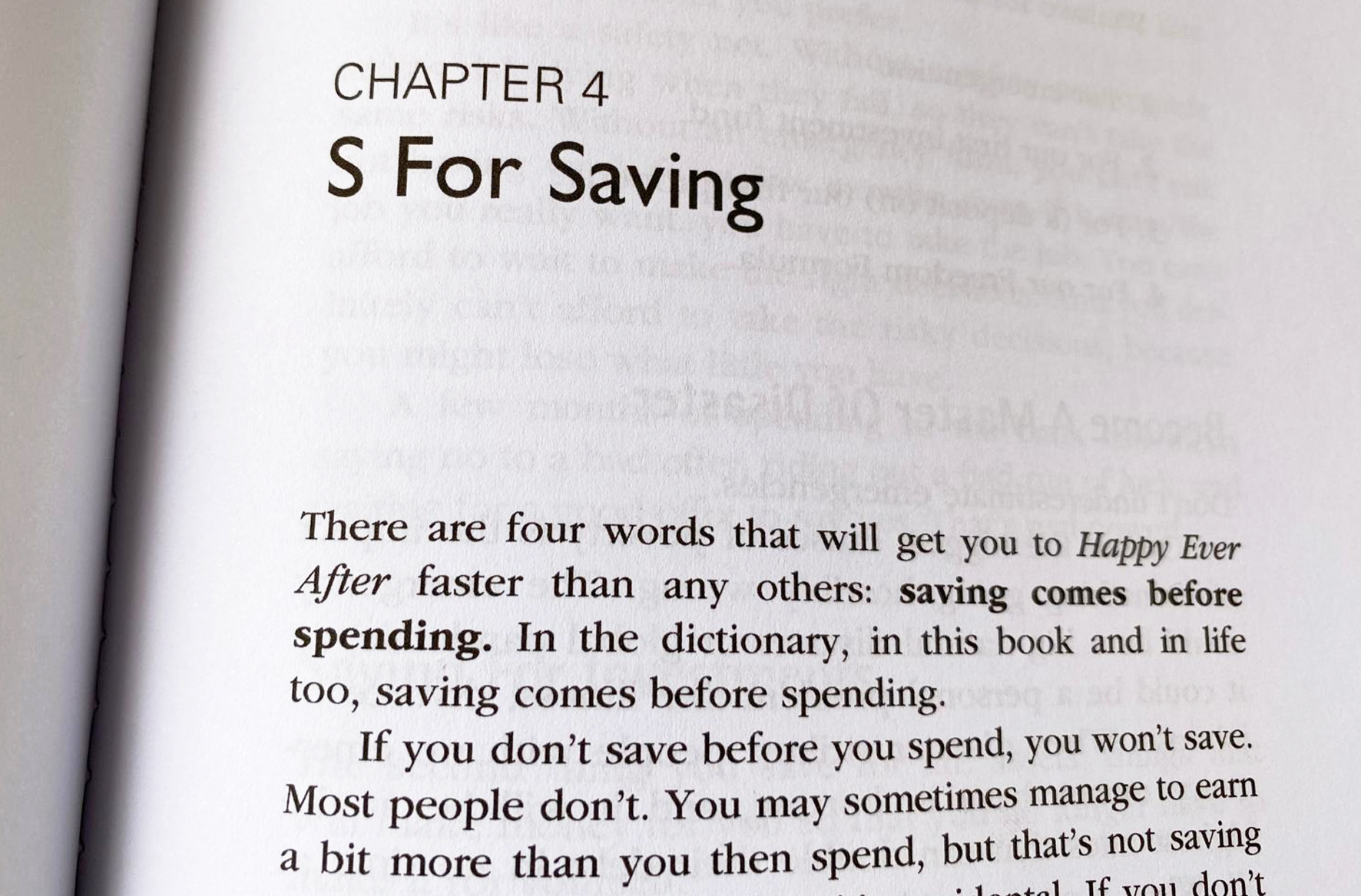I think I should write to Oxford, Webster and maybe even the people who put the squiggly lines under our words in spellcheck. You see, I think they’ve got something wrong in their definitions of saving.
There’s something really important missing.
As we all know, the least imaginative way of starting any kind of writing, speech or post is with a quote from the dictionary, so I’ll jump straight to my definition instead.
Saving, verb, the act of saving, is sending money that you want to keep for future use from your current account to your savings account (or your investment account, even better) at the beginning of the month.
The bolding is mine – then again, so are all the words – but the emphasis is essential.
Saving happens when you’ve been paid, and before you spend anything else, and not at any other time. “Pay yourself first”, Robert Kiyosaki famously said, and he was right, although most people don’t quite understand what he means, if they’ve just read or heard those three words.
When you don’t know different, you could think buying a beer is paying yourself, or going for a spa, or even covering your rent, but these are your expenses. These are your costs. This is what you pay other people to get you through the month, it isn’t what you pay yourself.
Only your savings are the profit form your time, they’re what you don’t spend, and that’s what paying yourself means.
And you do that first. Before you do anything else.
“But Seven,” people might ask me if they knew in real life that I went by that pseudonym online, “why does it have to be first? Isn’t it the same if I have savings left in my account at the end of the month?”
No, it isn’t the same. It might look the same, particularly if you save exactly the same amount of money, but it isn’t.
First, when we’re talking about saving as an activity, as a verb, it is an intentional activity. It isn’t passive or unintentional. It isn’t an accident.
Saving isn’t accidentally having money left over at the end of the month, which is what most people think it is, for some really good reasons.
1. That can’t become a habit. It’s an accident.
2. It won’t happen every time. It’s an accident.
3. Lifestyle creep will cause your cost of living to increase steadily over time, and then you won’t have any savings, and that really will be a bad accident.
If those three weren’t true, everyone in the world would already be saving money at the end of every month.
It’s not what I see. I mainly see borrowing at the end of the month, the opposite, whether it’s payday loans or putting the last grocery bill of the month on credit, more people accidentally dis-save at the end of the month. Not save.
But this doesn’t mean that every single dollar or cent we ever save has to be accurately predicted and then secretly squirelled away at the beginning of the month. We don’t have to be geniuses or clairvoyants. We can just be squirrels.
We just need to save something at the beginning. It could be a tiny amount. We need to start the month with the intention to save, and put some away.
Let’s say we want to save $210 (because we want to be Seven Dollar Millionaires, and saving $7 a day in a 30-day month is $210), but maybe that’s a bit hard. We might have tried it before and found it a bit tough, feeling really short at the end of the month.
We could try instead to put $100 into savings as soon as we get it, or even just $50. We might then try to make sure that at the end of the month, we still have money left over that we can use to top up our savings.
The need to save extra to hit our target could be just the extra motivation we need to cut back on spending through the month – but we’ve already started the month with the intention to save, and at the end, we’re just topping up.
As we said last week, taking baby steps is always the right way to start.
Take the right step at the start of every month, by saving first, even if it is just a baby amount, and you’ll have the chance to develop a stronger habit that will see you turn into a champion saver. And not someone who occasionally, accidentally, has a little money unspent at the end of the month.
Because that’s my dictionary definition of what saving at the end of the month is: “money accidentally left un-spent”. Oxford, are you listening?
I learnt the importance of saving first when working with migrant workers who wanted to develop better personal finance.
As perhaps the only word geek in the room, I used to say to myself, “saving comes before spending, in life, in this sentence, and even in the dictionary,” without realising that while the dictionary had got the words’ location right, they had left such an important part of the meaning missing wrong.
Saving comes first.
I believe this is so important that I deliberately built it right into the fabric of the book that I wrote for my daughter, “Happy Ever After“, which follows a MISSION – that stands for Money, Income, Saving, Spending, Investing, Owning, Now.
You see, in my book, saving really does come first.


